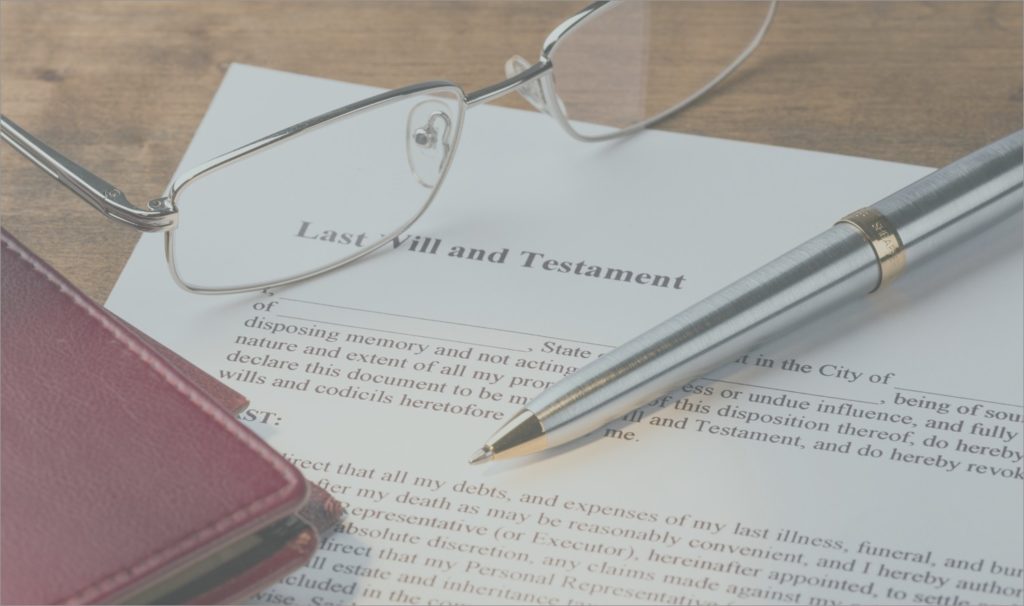Every year I like to revisit the topic of basic estate planning, because it really is one of the most important pieces of knowledge that a person can possess. Without the right tools, the basics can get overlooked and your entire financial plan for your future can get derailed. A common thing I see is people waiting for a major life event, such as a birth or marriage, before they start thinking about estate planning, but it should be done even before those things happen. Even if you are unmarried and have no dependents, there is still the question of what you want to happen to your money and property in the event that you die unexpectedly. Who do you want your assets going to? Do you want property donated to charity? Those are questions that can be answered by establishing a Will.
In the case of a married couple, there’s the question of who takes guardianship of children in the event that both parents die. By having this addressed in your Will, you can save your family from having to make such a difficult and important decision.
In this post, we’ll look at the basics of estate planning and establish the steps you need to take to ensure your financial future stays on track.
What a Will Does
A Will is a document that allows you to say who gets all of your money and property after you die, but this doesn’t necessarily cover everything.
If you have accounts such as IRAs or 401Ks, they will require you to appoint beneficiaries. This also applies to any life insurance policies you may have, as well as annuities. It’s important to remember that these beneficiary designations supersede anything written in a will, which is why those designations are something you want to review occasionally, especially after a big, life-altering event. The last thing you want to happen after your death is money or assets going to someone who is no longer in your life, which I have seen happen on more than one occasion.
You can keep track of your assets with a list, since Wills typically don’t keep track of where accounts and investments are held. It’s common for a Will to say who gets what percentage and leave it at that, so you want to make sure you keep a list of where your bank accounts are and where valuable assets should go, so there isn’t any confusion among surviving loved ones. You especially want to reveal hidden assets that your family might not necessarily know exists. Likewise, it’s a good idea to keep contact information. Think about who helped you with your policies and accounts and make sure your loved ones have phone numbers and email addresses for those people. They can easily help answer any questions and make the process as simple as possible.
The Decision Making Process
When it comes to planning your financial future, you don’t just want to think about what happens when you die, you also want to think about what happens if you become incapacitated and are unable to make decisions for yourself.
This can be done with a Durable Power of Attorney, which is a declaration that allows another person to make decisions on your behalf. These decisions can relate to things like your financial accounts and will allow the person to do things like write checks, use bank accounts, and make decisions regarding real estate if you are unable to.
Along those lines, you also have the Health Care Proxy and the Living Will. These make your wishes regarding the end of your life known. Say, for instance, you become incapacitated; these documents will make it known whether you want to be kept alive through artificial means or not. It’s especially important to have these decisions known ahead of time in the case of religious, moral, and ethical beliefs, so you want to make these declarations as soon as possible.
Trusts
People often associate the idea of a trust with the rich, but it’s something that anyone can take advantage of. If you have children under the age of 18, you can have a section of your Will that creates a trust and name those responsible for distributing the funds to your children until they reach the age where they are responsible enough to handle the money.
There are a lot of different types of trusts that you can establish, so you will need to speak with an estate planning attorney to figure out which type is best for you and to ensure your heirs aren’t overpaying taxes if you have more than the estate tax exemptions.
Those are the basics of planning an estate. In many cases, you can begin planning your own with the help of websites like Legal Zoom, where you can find downloadable documents related to estate planning. Additionally, you can always work with a professional financial planner who will know how to answer any questions you might have and guide you toward professionals who can make sure your estate-related goals are fully realized.
Content in this material is for general information only and not intended to provide specific advice or recommendations for any individual. Pence Wealth Management and LPL Financial do not provide legal advice or services.
